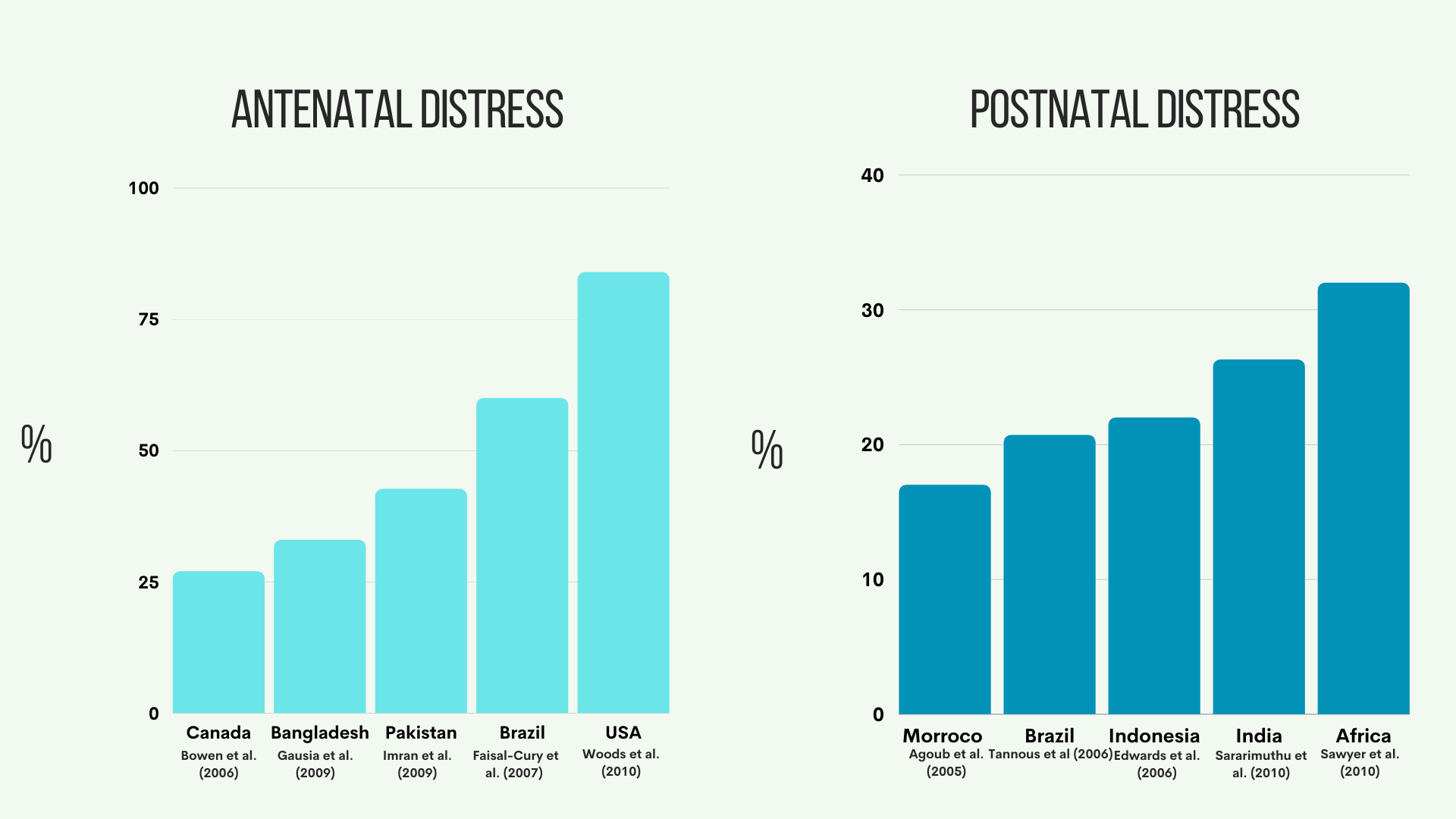Pregnancy is often both a source of happiness and stress for many expecting mothers. Tending to maternal mental health is critical in establishing long-term well-being for the mother as well as the child.
In the journey towards childbirth and motherhood, mental health problems such as anxiety and depression are more common than realised. A recent systematic review on non-psychotic common perinatal mental disorders (CPMD) among women from low and middle-income countries estimated that about one in six pregnant women and one in five women who have recently given birth experience a CPMD. In a study in rural Tamil Nadu, the incidence of postpartum depression (PPD) alone was 11%.
Depression, anxiety and stress commonly occur during pregnancy. The prevalence of major depressive disorder during pregnancy is 12.7%, while as many as 37% of women report experiencing depressive symptoms at some point during their pregnancy.

HOW IT IMPACTS THE MOTHER AND THE CHILD
The antenatal period is a crucial period for the neurodevelopment of the baby inside the mothers womb. If the mother is exposed to excessive stress, anxiety or trauma, it can impact both birth outcomes as well as emotional-behavioural aspects of the baby.
Psychological disturbances of mothers during pregnancy are associated with inadequate antenatal care, low-birth weight and preterm delivery. After birth, it can result in diminished emotional involvement, neglect and even some hostility towards the newborn.
Research has thrown more light on the links between maternal mental health and offspring’s emotional health and cognitive development through their lifespan. Here is another summary of various research studies on infant temperament, attachment, motor development and behavioural outcomes. Research on the pathways through which mother’s mood affects child development is still evolving. However, there is enough evidence that the connection exists and is a strong one.
RISK FACTORS FOR MATERNAL DISTRESS
Prior history of depression or other mental health episodes
Stressful Life events before pregnancy
Poverty, Nutrition
Marital Issues, Domestic violence
Societal pressures (child sex preference, color etc)
Lack of family/social/community support
THE BENEFITS OF FOCUSING ON MATERNAL MENTAL HEALTH
By caring for the mother’s overall well-being, we can have a positive impact on the mother’s ability to care for her infant and the development of her child. When timely intervention is provided to the mothers the risk of mental/ emotional issues can be minimised. This also lays the foundation for the well-being of the child (both mental and physical) into its adulthood.
POSSIBLE INTERVENTIONS
Despite this Prevalence and adverse effects, mental stress and difficulties during the perinatal period often go undiagnosed. Instead, symptoms such as fatigue, irritability are attributed to lack of sleep, and the “usual” challenges of motherhood.
A mental health component should be incorporated as an integral part of maternal
health policies, plans and activities. Self care practices, educating the family in creating a wholesome environment, nutrition, sleep and rest - all go a long way in bolstering perinatal mental health.
Some of the distorted thinking patterns can be specifically addressed through a psychosocial program using Cognitive Behaviour Therapy skills (UN’s Thinking Healthy is a prime example of this). A small proportion of women with severe impairment in daily functioning needs to be provided with specialist support.
Raising awareness of the prevalence and importance of mental health during pregnancy and making the right resources available is a challenge and an opportunity.
Thunai Trust is working on a psycho-social program for mothers in a government hospital setting. If you are a mother or a therapist and would like to learn more about maternal mental health, we would welcome you as a facilitator for the program. Please drop a message to us at connect@thunai.org
Video Citation
Mother and Baby Unit, Dr Trudi Seneviratne- Bethlem Royal Hospital
Postpartum Depression, Dr. Neema Sharma- Fortis Hospital

 THUNAI
THUNAI